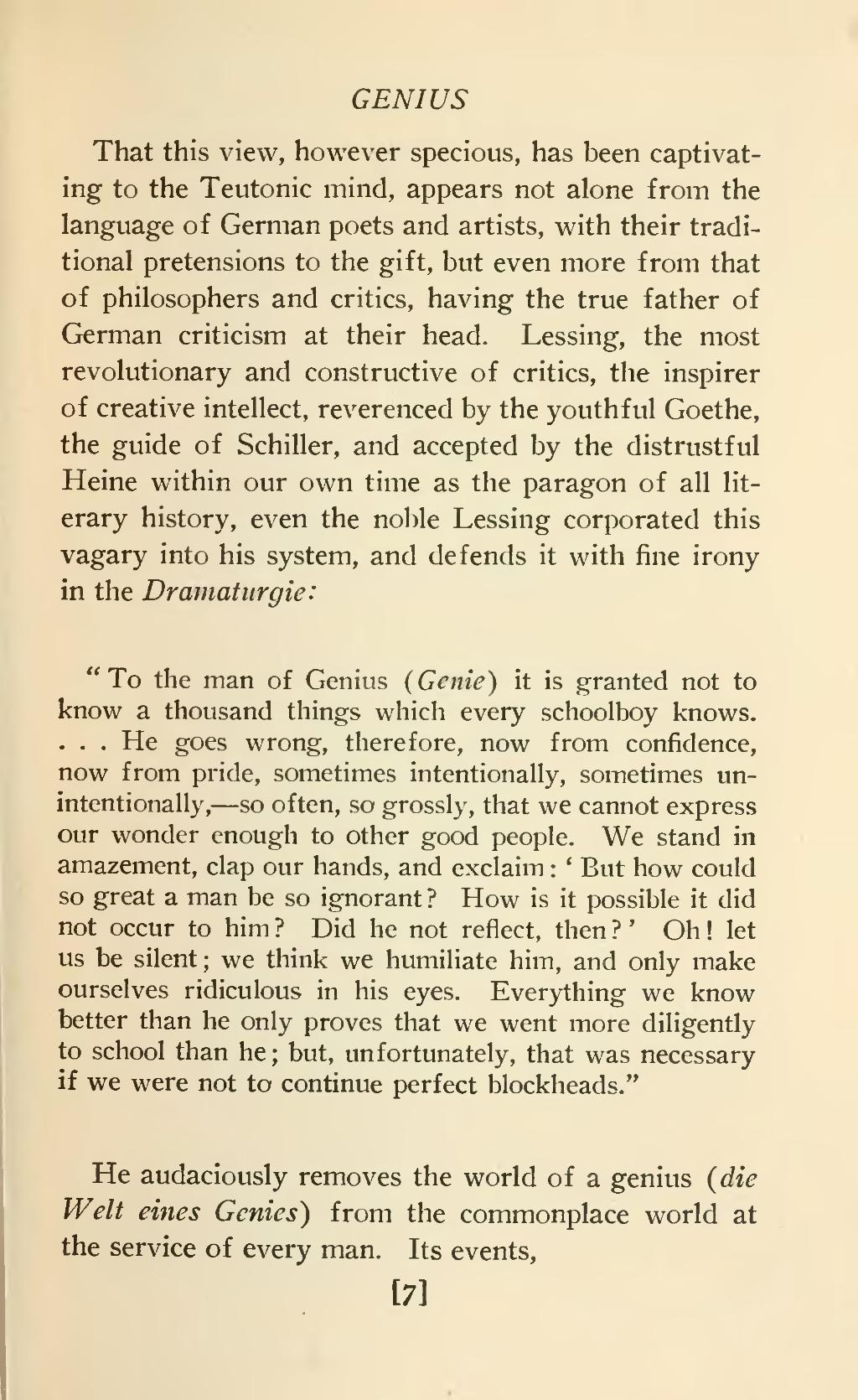GENIUS
That this view, however specious, has been captivating to the Teutonic mind, appears not alone from the language of German poets and artists, with their traditional pretensions to the gift, but even more from that of philosophers and critics, having the true father of German criticism at their head. Lessing, the most revolutionary and constructive of critics, the inspirer of creative intellect, reverenced by the youthful Goethe, the guide of Schiller, and accepted by the distrustful Heine within our own time as the paragon of all literary history, even the noble Lessing corporated this vagary into his system, and defends it with fine irony in the Dramaturgie:
"To the man of Genius (Genie) it is granted not to know a thousand things which every schoolboy knows, . . . He goes wrong, therefore, now from confidence, now from pride, sometimes intentionally, sometimes unintentionally,—so often, so grossly, that we cannot express our wonder enough to other good people. We stand in amazement, clap our hands, and exclaim: 'But how could so great a man be so ignorant? How is it possible it did not occur to him? Did he not reflect, then?' Oh! let us be silent; we think we humiliate him, and only make ourselves ridiculous in his eyes. Everything we know better than he only proves that we went more diligently to school than he; but, unfortunately, that was necessary if we were not to continue perfect blockheads."
He audaciously removes the world of a genius (die Welt eines Genies) from the commonplace world at the service of every man. Its events,
[7]
